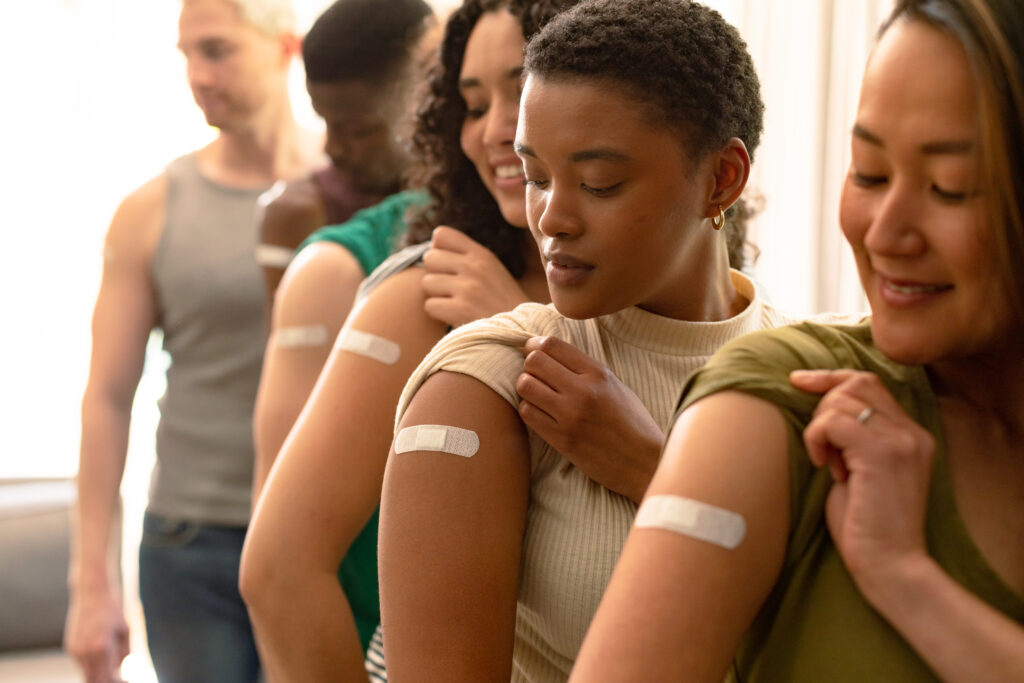
As Benjamin Franklin said, “an ounce of prevention is worth a pound of cure.” Vaccines prevent disease and keep kids and adults healthy.
A vaccine contains a dead, inactivated or killed germ that doesn’t cause disease and small amounts of other ingredients, like formaldehyde, mercury and aluminium. These ingredients are safe in very tiny amounts and help the vaccine work better.
How They Work
Nobody likes shots, but vaccines help us avoid diseases that can be life-threatening. The shots safely imitate natural infections and teach our immune systems how to fight them off.
Some vaccines use a dead or weakened virus or bacteria, a toxin from the bacteria that cause diphtheria and tetanus, or bits of lab-made protein to imitate the disease. This teaches our immune systems to recognize the germ and respond to it as it would to an actual infection.
When the vaccination is given, it can cause a mild response including a fever, swelling at the injection site or muscle soreness. These symptoms are a sign that the vaccine is doing its job and creating immunity.
There are newer types of vaccines that give instructions for our cells to make a harmless part of the germ, such as the spike protein from COVID-19, rather than a dead or weakened virus or bacteria. This is called mRNA vaccines and it’s a new way to create vaccines.
Why They’re So Important
Vaccines are one of the greatest medical advancements in history. They save lives, especially among young children. They prevent diseases that can lead to severe symptoms, long-term disabilities and death, such as polio, measles, rubella, mumps, tetanus and human papillomavirus (HPV) cancer.
Immunizations, including vaccines, can reduce overall health care costs by decreasing the number of people who get sick and need treatment. They also increase life expectancy around the world.
Scientists create vaccines using weak or dead germs that cannot make you sick. They do this by passing the disease-causing virus through a series of cell cultures or animal embryos, called attenuation, until it can no longer cause illness but still triggers an immune response. This process can take months or even years. Vaccines may cause some mild side effects, such as redness or swelling at the injection site, but the protection from the disease lasts a lifetime.
Who Gets Vaccinated
As Benjamin Franklin sagely said, “An ounce of prevention is worth a pound of cure.” That’s why vaccines are so important. They help to protect healthy kids from disease, and they also prevent outbreaks that could make people very sick and cause a lot of missed school or work days.
Vaccines contain either killed or weakened (also known as attenuated) bacteria or viruses. Some vaccines may even cause a mild case of the actual disease, such as chickenpox or measles, but only because it’s stimulating the immune system to respond. This is a good thing.
Vaccines also help to create herd immunity, so that even healthy individuals are protected from vaccine-preventable diseases. This keeps communities healthy and prevents diseases from spreading to vulnerable populations, like infants and the elderly. Herd immunity can save us billions in health care costs and lost workdays.
What to Expect
A vaccine is a dose of weakened (or attenuated) live virus or bacteria, killed or inactivated organisms, subunits (pieces of a germ like protein or sugar), toxins, polysaccharides, conjugates or messenger RNA (genetic material that gives your cells instructions for making a specific germ-related substance). Vaccines are very carefully studied and approved by the FDA.
Vaccines are often given at early ages when the protection from their mother’s immune system is starting to fade, but before kids come into contact with the germs that cause real disease. The risk of side effects from vaccines is extremely low, especially when compared to the risk of disease and its complications.
If your child does experience a side effect, over-the-counter medications like acetaminophen (e.g. Tylenol), ibuprofen (e.g. Motrin) or naproxen (e.g. Aleve) can help relieve it. Occasionally, vaccines can trigger a serious allergic reaction or seizure. However, these reactions are very rare and only happen in a small number of children.